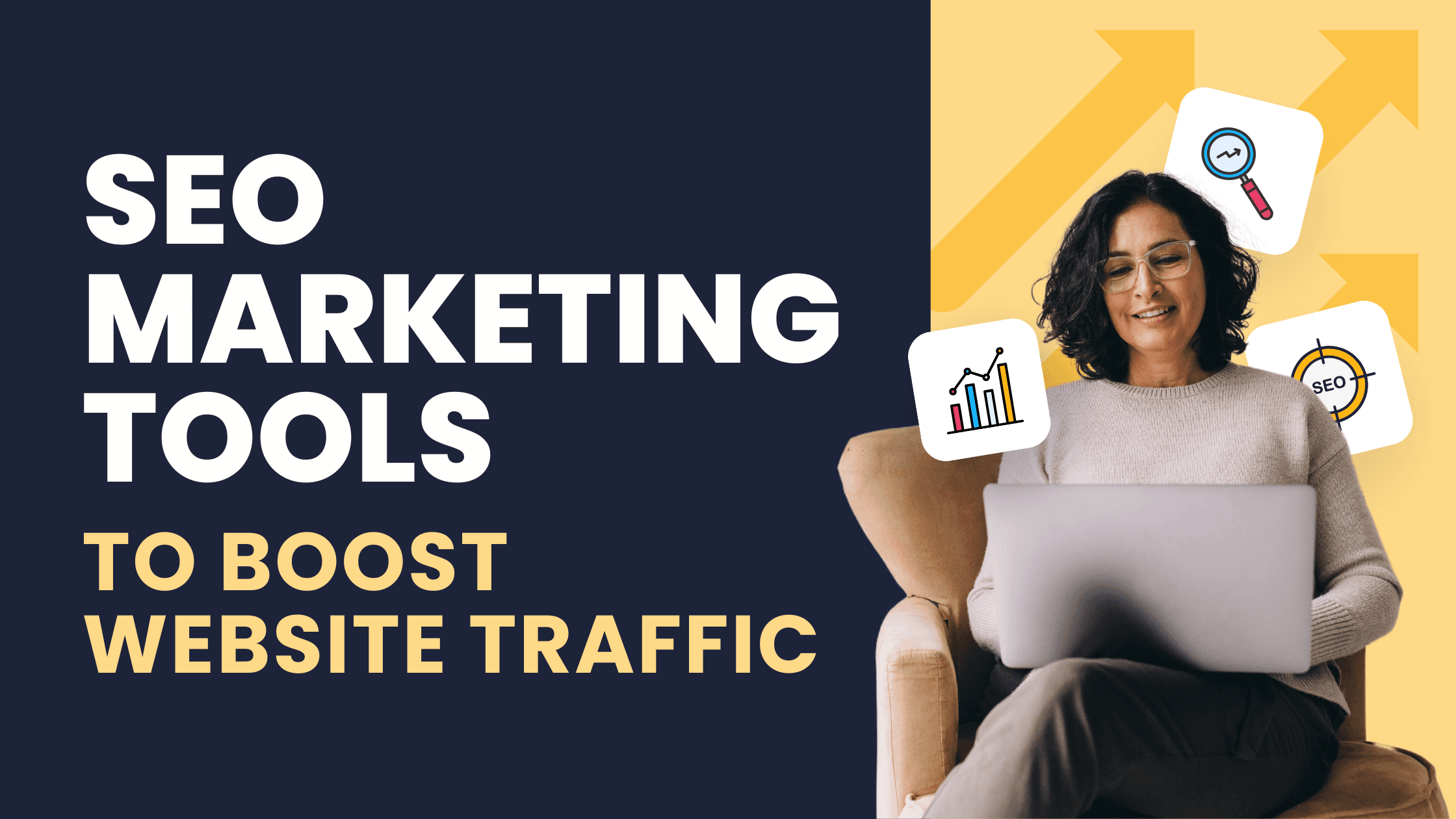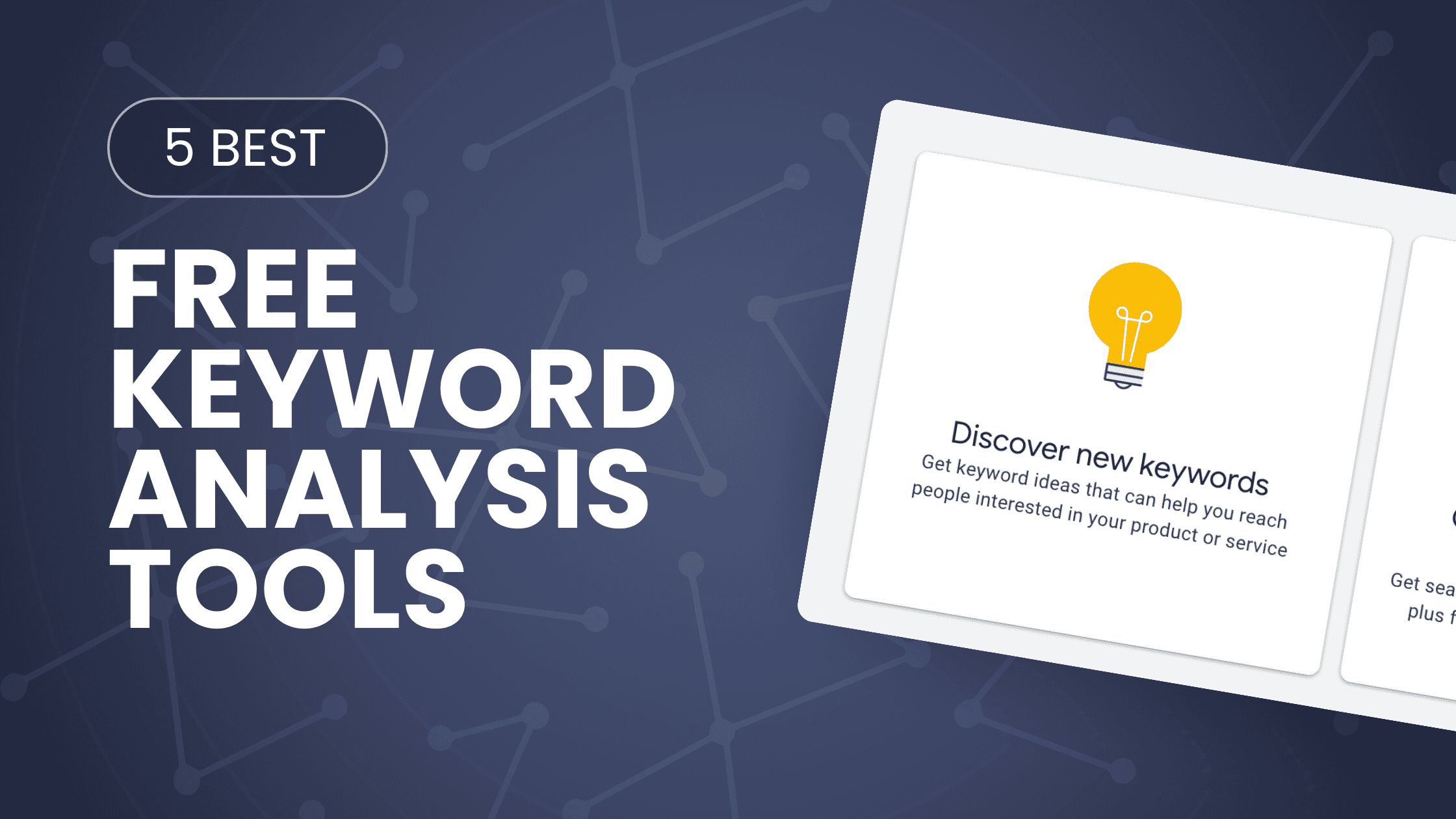Search Engine Optimization
SEO Marketing Tools to Boost Website Traffic
Dec 2, 2024
What is SEO Marketing?
SEO (Search Engine Optimization) marketing, or simply SEO for short, is the ongoing task of improving your website's visibility on search engine result pages (SERPs) to increase your more organic traffic. For the long term success of a business, you need to step up the gas on SEO and rely lesser on Paid Marketing and Ads. SEO Marketing involves optimizing various aspects of a website, such as content, meta data, technical infrastructure, and backlinks, to best-align with search engine algorithms and rank higher. The ultimate goal is to enhance user experience, build authority, and drive targeted traffic that can convert into leads or sales
If you would like to understand more about SEO Marketing, read What is SEO?, which is a comprehensive SEO Guide for beginners and marketers who would like to deepen their understanding of SEO marketing basics.
SEO marketing is heavily reliant on taking full use of a bunch of free or paid SEO Marketing tools. But before we dive deep into SEO marketing tools, let’s look at why you need these SEO tools in your SEO journey.
Why Do You Need SEO Marketing Tools?
SEO is multifaceted. There are many varied aspects to SEO and planning your SEO strategy starts with understanding what you need to work on first and foremost.
SEO can be divided into three main pillars: On-Page SEO, Off-Page SEO, and Technical SEO. Each of these plays a critical role in the overall success of your SEO strategy. There are specific tools that cater to each of these pillars, encompassing tasks like keyword research, technical auditing, content optimization, and backlink management.
Without SEO marketing tools, managing all the moving parts can be overwhelming and inefficient. SEO tools provide actionable insights, track performance, and identify growth opportunities, making the entire process more efficient as well as effective.
Below is a breakdown of the main SEO categories and the SEO marketing tools that support them.
SEO Marketing Tools for On-Page, Off-Page and Technical SEO
A. On-Page SEO Marketing Tools
On-Page SEO focuses on optimizing individual web pages to rank higher and attract relevant traffic by improving content quality, keywords, and metadata. Here’s a short summary of the steps you need to take for effective on-page SEO marketing.
SEO Keyword Research
Analyse Meta Data of Competitors
Create Keyword-Rich & Action Oriented Meta Title
Create Meta Description with Target Keywords
Use Header tags to organize your Website
Optimise URL Structure
Optimise Images and Add Alt Tags
Add Internal links to All Pages
Create High Quality Content Consistently
Check Mobile Responsiveness and Site Speed
If you’d like to delve deeper into this tried and tested on-page SEO strategy, feel free to refer to our article on On-Page SEO Strategy and Optimization.
Coming back, these seem like a lot of steps, right? However, SEO marketing tools like Yoast SEO and Google Keyword Planner help attack these action points systematically.
Here are the on-page SEO related tools that are essential to get started.
Keyword Research Tools: These keyword research and analysis tools help identify high-value keywords that your target audience is searching for. This is the first step for the on-page strategy. Typically keyword research tools provide the following insights
Search volume and keyword difficulty.
Competitor keyword rankings.
Long-tail keyword suggestions.
Trends and seasonal data.
Examples: Google Keyword Planner, SEMrush, Ahrefs, Ubersuggest, Moz Keyword Explorer
If you’re not looking to splurge on the paid tools right now, you can also explore the best free keyword analysis tools that are sufficient for the beginning stages.
On-Page Optimization Tools: SEO on-page optimiziation tools help in optimizing the individual on-page elements like website metadata, headers, and internal links to align with SEO best practices. They provide suggestions for optimal meta tags (title, description), header (H1-H6) structure analysis, internal linking analysis and recommendations, image alt tag optimization and more.
Examples: Yoast SEO, Surfer SEO, SEOptimer are popular in this category of SEO marketing tools.
SEO Ranking Checker Tools: To gauge the efficacy of your SEO, it is imperative to track your search rankings and keyword rankings over time, and identify opportunities for positive changes. You will typically be able to track your rankings by search queries and by pages with these tools. With advanced tools, you can also see keyword difficulty, gaps and more insights.
Examples: Google Search Console is by far the most reliable SEO rank tracking tool. You can also check out the 5 best SEO Ranking Checker Tools in detail, complete with their pros and cons.
Content Optimization Tools: While there is no replacement for quality content, SEO tools can help enhance content quality, readability, structure improvements and relevance for better engagement and ranking. AI tools can also help strategise on content strategy as well. It is also easier to follow the recommendations for word count, topic coverage, and tone.
Examples: Clearscope, MarketMuse, Grammarly, Hemingway Editor
B. Off-Page SEO Marketing Tools
Off-page SEO marketing involves improving your website’s authority and reputation through backlinks, social signals, and external mentions. Backlinks play the most important role in domain authority building within off-page SEO. Tools such as Ahrefs and BuzzSumo assist in link-building, monitoring, and analyzing competitors' strategies.
Backlink Analysis Tools: Backlink analysis tools help in evaluating the existing backlinks for your website. Once you’ve analysed your own backlinks, you can use the data to improve your website’s authority and identify new link-building opportunities. Backlink checker tools will typically provide the following insights
Number and quality of backlinks.
Referring domains and their DA/ PA
Lost and gained links.
Anchor text for links.
Toxic or spammy backlinks.
Examples: Ahrefs, SEMRish, Moz. You can also analyse backlinks with Free Backlink Checker Tools
Competitor Analysis Tools: Use competitor research SEO tools to identify strategies that have been successful for competitors. You can also list down backlinks that they’ve gained and you haven’t. Content gaps can also be analysed with competitor research SEO tools.
Insights Provided:
Competitors’ top-performing keywords and backlinks.
Traffic sources and estimated volumes.
Comparison of domain authority and page rankings.
Examples: SEMrush, SimilarWeb, SpyFu
Social Media Management Tools: Social Media channels are an easy source for building authority with no-follow backlinks and increasing your traffic organically. You can enhance your social media presence and links by using social media integration tools and regularly posting content relevant to your audience. Such content can help drive traffic, sign-ups, leads and more. Most social media SEO marketing tools also provide helpful insights like content performance and engagement metrics, top-shared content, brand mentions and sentiment analysis. Advanced tools may also help identify relevant influencers in your niche, who will further increase your reach.
Examples: Buffer, Hootsuite, BuzzSumo
C. Technical SEO Marketing Tools
On-page and Off-page SEO is helpful only if the website itself is technically sound and accessible to search engine crawlers. For optimal SEO performance, you should focus on the website’s loading speed, indexing, and infrastructure. Tools like Google Search Console and Screaming Frog SEO Spider identify and resolve technical issues for improved crawlability and speed.
Technical Audit: Every website needs a technical audit periodically to analyze your website's technical health, including crawlability and indexing issues. Prioritise the website’s technical health to ensure that your SEO efforts pay off. There are several free and paid SEO Technical Audit tools that you can use, depending on the level of detail you’d like to delve into. Common technical errors include crawl errors (404s, redirects), duplicate content, cannibilisation, missing metadata, broken links etc.
Examples: Google Search Console, Screaming Frog SEO Spider
Site Speed Optimization: Along with basic indexation, sitemap issues, it’s important that your site’s performance is fast and the website is mobile-friendly. Site speed optimisation tools help identify and fix issues slowing down your website for better performance. Usually Technical Audit and Site Speed Optimisation is provided in the same tools for ease of management.
Examples: Google PageSpeed Insights, GTmetrix, Pingdom Tools, Lighthouse
Local SEO: For businesses that have a physical presence, Local SEO can help in discovery within the area. Use Local SEO marketing tools to manage business listings and ensure technical optimization for local searches. This can also improve visibility on Google / Apple Map searches or ‘near me’ searches. Creation of local business profiles is usually the first step in Local SEO. Ensure accuracy of business name, address, and phone numbers to improve visibility on Google Maps and local search results. Some tools may also provide reviews and ratings analysis for your local business listings.
Examples: Google Business Profile, Moz Local, Yelp
Analytics and Reporting: Advanced analytics, automated reporting, and comprehensive dashboards can help measure website performance on an ongoing basis. Such analytic SEO marketing tools often provide insights through actionable reports like user behavior, engagement metrics (bounce rate, session duration), organic traffic trends and conversion rates. You can also create customizable performance dashboards and reports to suit your own needs.
Examples: Google Analytics, Matomo, Looker Studio (formerly Data Studio)
In summary, SEO marketing is a cornerstone of long-term online success, and utilizing the right SEO marketing tools can make a world of difference in your efforts. By focusing on the three pillars—On-Page SEO, Off-Page SEO, and Technical SEO—you can create a well-rounded strategy that enhances visibility, improves user experience, and drives organic traffic through SEO.
The SEO marketing tools highlighted in this blog are designed to help you tackle each pillar efficiently, offering insights and automation to simplify the SEO process. Whether you're a beginner taking the first steps or an experienced marketer refining your approach, investing time in mastering these tools will ensure that your website remains competitive in an ever-evolving digital landscape.
Start small, focus on measurable actions, and use the tools to fine-tune your strategy as you grow. SEO is a marathon, not a sprint—but with the right toolkit, you'll be well-equipped to win in the long-term!
REWAQE
Full funnel Digital Marketing and Advertising Agency
Search Engine Optimization (SEO) | Google & Meta/ Facebook Ads Management | Social Media Marketing | Content Marketing | UI UX Design | Email Marketing
@2021 | All Rights Reserved | Rewaqe Technologies Private Limited
About | Terms of Use | Privacy Policy | Refunds






